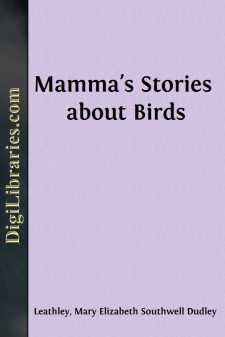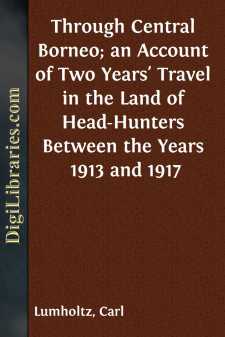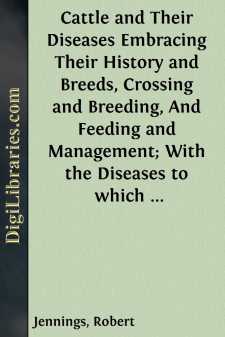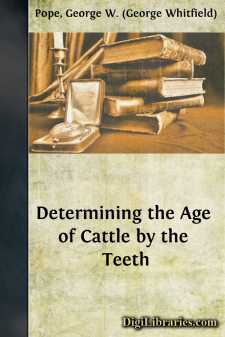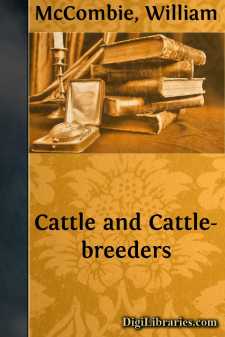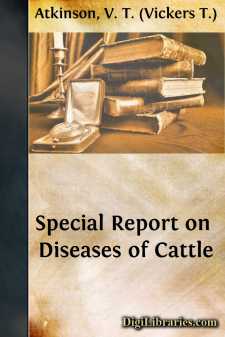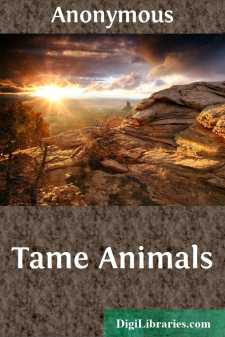Nature
Nature Books
Sort by:
THE EAGLE. The Eagle is often called the King of Birds, and therefore it is of him that we ought to speak first. Very likely you have often seen eagles in the Zoological Gardens, and, if so, you know what noble looking birds they are. But they seem very sad in their prison-houses, to which no kindness can ever attach them. They are formed to soar boldly to the top of some lonely mountain height, and...
more...
by:
Carl Lumholtz
PREFACE Ever since my camping life with the aborigines of Queensland, many years ago, it has been my desire to explore New Guinea, the promised land of all who are fond of nature and ambitious to discover fresh secrets. In furtherance of this purpose their Majesties, the King and Queen of Norway, the Norwegian Geographical Society, the Royal Geographical Society of London, and Koninklijk Nederlandsch...
more...
by:
Robert Jennings
PREFACE. A marked interest has of late years been manifested in our country relative to the subject of breeding and rearing domestic cattle. This has not been confined to the dairyman alone. The greater portion of intelligent agriculturists have perceived the necessity of paying more attention than was formerly devoted to the improvement and perfection of breeds for the uses of the table as well. In...
more...
DETERMINING THE AGE OF CATTLE BY THE TEETH. The age of cattle can be approximated closely by the appearance, development, and subsequent wear of their second incisor teeth. Cattle have eight incisor teeth, all in the lower jaw. In the calf at birth two or more of the temporary or first incisor teeth are present. With the first month the entire eight incisors have appeared.Fig.1.—Internal face of...
more...
by:
William McCombie
I. THE FEEDING OF CATTLE, Etc. (Read before the Chamber of Agriculture.) As my friend Mr Stevenson and some other members of the Chamber of Agriculture have expressed a desire that I should read a paper on my experience as a feeder of cattle, I have, with some hesitation, put together a few notes of my experience. I trust the Chamber will overlook the somewhat egotistical form into which I have been...
more...
Medicines may be administered to cattle in many ways. The channel and method of administration depend on whether a general or local effect is desired, the condition of the animal, and the nature of the medicine that is to be given. The easiest method, and therefore the most common, is to give ordinary remedies by the mouth with the food, with drink, or separately. There, are, however, some conditions...
more...
by:
Barnum Brown
Chapter I. Its Antiquity, Duration and Significance in Geologic History. Palæontology deals with the History of Life. Its time is measured in geologic epochs and periods, in millions of years instead of centuries. Man, by this measure, is but a creature of yesterday—his "forty centuries of civilization" but a passing episode. It is by no means easy for us to adjust our perspective to the...
more...
INTRODUCTION The wonderfully successful book, entitled "Black Beauty," came like a living voice out of the animal kingdom. But it spake for the horse, and made other books necessary; it led the way. After the ready welcome that it received, and the good it has accomplished and is doing, it follows naturally that some one should be inspired to write a book to interpret the life of a dog to the...
more...
INTRODUCTION One of the effects of the modern advance in natural science has been greatly to increase the attention which is devoted to the influences that the conditions of diverse peoples have had upon their development. Man is no longer looked upon, as he was of old, as a being which had been imposed upon the earth in a sudden and arbitrary manner, set to rule the world into which he had been sent...
more...
by:
Anonymous
THE HARE. I suppose you have all seen a Hare, and perhaps many of you have helped to eat one. The Hare is a very timid animal, running away on the least alarm; but, poor fellow, he is too often caught by the dogs and killed, notwithstanding his swift running. It is rather difficult to tame Hares, but there is a very amusing account of three, named Puss, Tiney, and Bess, written by the poet Cowper, who...
more...


